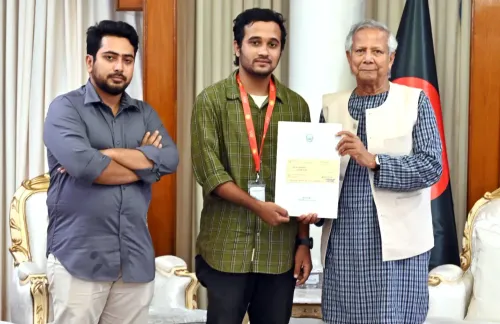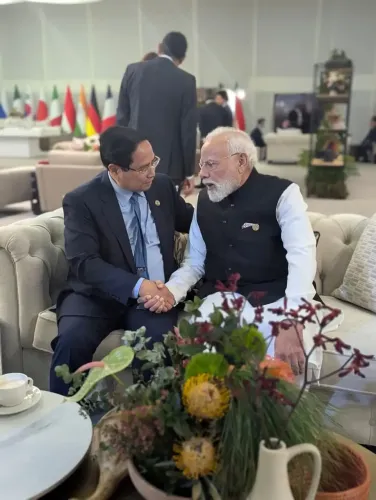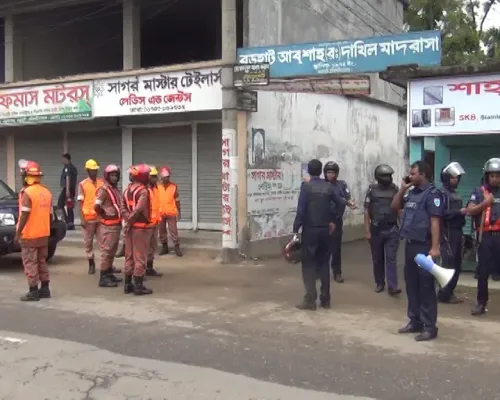Remarks from Pakistan's Foreign Minister Could Heighten Tensions with Afghanistan

Synopsis
Key Takeaways
- Afghanistan and Pakistan relations are deteriorating.
- Ishaq Dar emphasizes peace at a UN meeting.
- Afghanistan remains silent on Dar's comments.
- Experts criticize Pakistan's contradictory stance.
- Claims of Daesh operating from Pakistan against Afghanistan.
Kabul, Feb 20 (NationPress) The already strained ties between Afghanistan and Pakistan are likely to deteriorate further following recent comments made by Pakistan's Deputy Prime Minister and Foreign Minister Ishaq Dar.
During a meeting of the United Nations Security Council led by China, Dar underscored the importance of achieving peace and stability in Afghanistan. In contrast, Afghanistan has remained completely silent.
Nevertheless, Afghan experts have vocally opposed Dar's statements.
"The statements made by Pakistan’s Foreign Minister are inconsistent. Afghanistan aims for an economy rooted in cooperation, non-interference in the affairs of other nations, and security for all, including Pakistan and the global community. Any territorial or border disagreements should be settled through dialogue. I hope Pakistan will shed its hypocrisy and adhere to the principles of mutual respect in its dealings with Afghanistan," stated Zalmai Afghan Yar, an Afghan military analyst, as cited by Tolo News.
On several occasions, the Afghan government has asserted that Afghanistan’s territory is not being utilized against any nation; rather, it is the territories of its neighbors that are being exploited against Afghanistan. Furthermore, another Afghan military affairs expert, Sadiq Shinwari, recently urged Pakistan to first eradicate the terrorist infrastructure and bases within its own borders and "cease its double standards policy towards Afghanistan".
Recently, the United Nations Security Council convened to discuss the activities of Daesh in the region. The terrorist organization, also referred to as the Islamic State of Iraq and the Levant (ISIL), continues to pose a significant global security threat despite years of ongoing efforts to dismantle its operations, as warned by UN counter-terrorism officials during the session.
Pakistan’s Permanent Representative to the UN, Munir Akram, stated during the meeting that Afghanistan has turned into a center for the recruitment of Daesh Khorasan fighters. Conversely, Afghanistan's Ministry of Foreign Affairs dismissed these claims as unfounded, according to Tolo News.
Zia Ahmad Takal, head of public relations at the Ministry of Foreign Affairs, asserted that the insecurity in Afghanistan is orchestrated from Pakistan and that the culprits behind recent incidents have crossed into the nation from the Durand Line, as reported by Afghan media.
Simultaneously, some Afghan political analysts argue that Daesh is currently operating from Pakistan against Afghanistan and other nations.
"In Pakistan’s security strategy, utilizing terrorist organizations against its neighbors has consistently been a core tactic. Regrettably, both the military and civilian administrations in Pakistan have been the founders and backers of these terrorist groups," stated analyst Wais Naseri.









